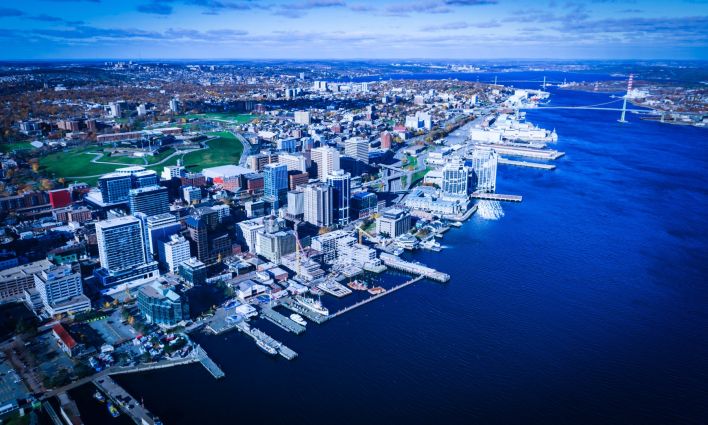An Open Letter to the Nova Scotia Minister of Finance
Today is the deadline for Nova Scotians to submit their ideas for this year's provincial budget. This letter was sent along with our alternative budget as CCPA-NS' ideas for what the government can and must do differently.
Dear Minister Delorey;
The Canadian Centre for Policy Alternatives-NS’ ideas for the 2017-18 provincial budget are contained in our most recent alternative budget. This document is the result of the work of 40 plus members of a multi-sectoral working group. Every year we develop a set of fiscal policy measures as part of a workable budgetary framework that takes into consideration the political and economic realities of the province.
The alternative budget makes a persuasive case for how the Nova Scotia government can raise and allocate public funds to create a province that is socially and economically just, as well as environmentally sustainable. That is our vision, what is yours?
Balancing the budget is not a vision. Turning every challenge into a fiscal zero-sum one, also lacks leadership. Rhetoric about unsustainable fiscal challenges doesn’t ensure that Nova Scotians can access essential accessible health care that is focused on promoting health and not just treating illness. Nor does it ensure that the schools in our communities are resourced to ensure quality education for all. Nor does it alleviate the stress of not being able to make ends meet for those who are unable to find a job or unable to work.
The fiscal balance sheet should not be a political tool manipulated to justify spending or policy decisions, presented as if there are no other choices.
The meaning this government attributes to the size of its deficit and debt, should be presented in historical context and considering newest economic analyses and evidence. Seeking to peg the debt to GDP ratio to a target such as 30% (the target in the Ivany report) is without empirical evidence. Since the turn of the century, our debt-to-GDP ratio has fallen by over 20%. Furthermore, there has been a proliferation of serious empirical studies on sustainable debt levels. These focus on identifying the point at which governments’ debt levels start to adversely affect their ability to finance programs. A recent study by the IMF, for example, concludes that debt-to-GDP ratios of less than 90-100% pose little concern and that serious problems only arise when debt rises above 150% of GDP. The OECD puts these figures at 120% and 170% respectively. Nova Scotia’s debt, even when combined with the federal debt, is nowhere close to unsustainable levels.
What is your measure of good governance? Surely more than whether a government can restrain its way to a balanced budget? Ours includes investments that provide not just good jobs, but quality services to Nova Scotians.
On the jobs front, under your government, employment has stagnated, and almost 50,000 Nova Scotians continue to actively seek employment, but are unable to find it. Many who do find employment are left trying to make ends meet with multiple part-time jobs at low wages. No wonder thousands of Nova Scotians have dropped out of the labour force altogether. The unemployment rate in our province, outside of Halifax, is significantly higher than the national rate and nearly double in some communities (6.9% for Canada, &.4% for NS overall, and 13.5% for Cape Breton).
Nova Scotians need jobs, good full-time jobs that pay a decent wage and provide them with some stability, alleviating the stress of having to go further into debt to pay for the essentials. Where is the government’s jobs strategy?
The Alternative Budget shows how much more our government could be investing by reallocating some resources, and making the tax system fairer, within a steady downward trending debt to GDP ratio—in other words, a sustained and balanced approach.
The Alternative Budget shows that if it chooses, our government can prioritize poverty reduction, build an inclusive labour market and address inequities, which will lay the foundation we need for a province where everyone can not only survive, but also thrive. Addressing health, family, employment and income inequities that are felt most acutely by women, by people with disabilities, Aboriginal people, and racialized minorities (African Nova Scotians, visible minority, immigrants) will fuel our economy and benefit our entire society.
Applying an intersectional lens to the budget is necessary.
In order to promote intergenerational equity, our government’s spending priorities must be responsive to the needs of citizens across the life cycle. Our government can and must make investments to ensure that the children in our province receive the care they deserve in their early years, have access to quality, publicly funded education as they grow, and can take advantage of opportunities to continue learning and developing as adults. High-return social investments are abundant, and with interest rates that the government can lock in at historic lows, the costs are as low as they will ever be.
Rather than continuing to exploit our land and water for short-term, private gain, the Alternative Budget lays out a plan for our natural resources that is both economically and environmentally sustainable.
Bringing in the revenue to fund our future is a matter of sharpening the tools we already have. Nova Scotia’s progressive taxation system needs reform: a few simple changes can help to improve life in this province for everyone. Our taxation backgrounder explains in detail which changes would make our tax system more progressive, ensuring that those who have the ability actually contribute their fair share.
CCPA-NS’ Alternative Provincial Budget is a concrete demonstration of what we can do, and indeed what a matter of economic and social necessity it is that your government does things differently. If the provincial government instead continues on its current path marked by public sector spending restraint, it is more than a missed opportunity. This government risks further undermining the public services Nova Scotians need, including primary health care, long term care, home care, child care, income supports, affordable housing, and education.
A just, healthy, and sustainable society has a price, but it is worth the investment, and the time to invest is now.
Sincerely,
Christine Saulnier, PhD
Nova Scotia Director, CCPA





